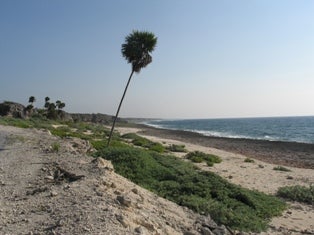Protecting Marine Life in Cuba

Guanahacabibes National Park, is located in the far southwest corner of Cuba, just across the Yucatan Strait from Cancun and smack dab in hurricane alley. Last week Pam Baker (from our Texas office) and I paid a visit to Cuban colleagues there to learn more about new efforts to protect fish populations, coral reefs, sea turtles, and coastal ecosystems.
Most of the park’s waters are off-limits to the harvesting of reef fish, spiny lobster and other species. La Bajada, a small village perched on the rocky coastline of the park, is home to a few dozen subsistence fishermen who are still allowed to catch fish in a designated area.
The park’s pristine beaches provide important nesting grounds for endangered turtle species, including loggerhead, green, and hawksbill turtles. Park scientists and volunteer students provide round-the-clock monitoring during nesting season and have virtually eliminated poaching of turtles in the park.
Just recently, Cuban scientists have initiated a project to assess and control growing populations of the deadly Pacific lionfish, a non-native species that threatens native fish and fishermen alike. We are working with them to develop strategies to combat this invasive and dangerous species. We are also teaming up to assess the impacts of sea level rise along the southern coast of Cuba and to examine adaptation and mitigation opportunities. By some estimates, all of the park’s mangrove forests could be submerged in ocean waters by 2050. For more on these and other collaborative projects in Cuba go to www.edf.org/cuba.











2 Comments
Great job! I’m glad to hear that EDF is collaborating with Cuban scientists to preserve that part of Cuba that is so rich in biodiversity. I remember spending my summer vacations at Guanahacabibes beaches (about 10 years ago when Dr. Maria Elena Ibarra started the sea turtle conservation project), doing nocturnal surveys to measure sea turtles and protect their eggs. Please continue with these efforts, protecting this area will have a positive impact in Cuba, the Gulf of Mexico and in the Wider Caribbean region. Thanks!
I enjoyed reading your interesting yet very informative insights. I just love reading anything about eye-catching articles. Thank you for sharing and I am looking forward to reading your newest and most recent masterpieces!!! – Texas Hunting